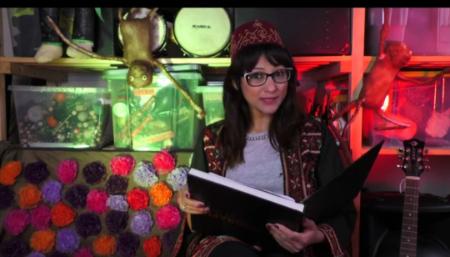The use of children’s images by media during war
My name is Kindah, and I am from Syria, where I spent most of my life. I am an optimistic person and always try to find hope in everything, despite facing difficulties in the past. I am blessed with a wonderful 8-year-old daughter who brings me joy and gratitude every day. I left Syria due to the war and came to England in search of safety and a brighter future for my daughter. I love reading because it improve my writing skills and in the future I intend to publish a book about my journey from Syria to Britain. I completed my university studies in the Department of Media and Communication at Damascus, and later pursued my master's degree in international journalism at John Moores University in Liverpool. Currently, I am in my first year of my PhD programme at the University of Liverpool.
My research
The idea for my research came after living through the Syrian war for over five years. I used to believe that moving away from Syria and the immediate danger would make me feel safe, but every time I watched news about Syria after arriving in Britain, I felt the same fear and pain. I feared for the future of the children whose pictures we see every day in news bulletins and on social media. I often wondered how I would feel if I saw a picture of my daughter among these children. What is the purpose of publishing these pictures and exposing these children to more danger? Why are children being thrown into the conflicts of big countries and politics?
These questions prompted me to search for the truth behind the publication of these children's pictures and what the Convention on the Rights of the Child stipulates. Who is responsible for protecting these children during wars?
This is what I am attempting to uncover through my research: the media and politics employ children as weapons in their conflicts and wars. The international community and organizations must safeguard these children, prohibit the publication of their photos, and remove them from the battlefield.
One thing that I really enjoy during my research is learning more about the rights of children and the best ways to protect them. I also try to spread this information among my friends and the community to which I belong, as most people do not know much about children's rights. Being a mother and a student at the same time is also enjoyable for me. I spend quality time with my daughter while we study together.
As my research focuses on children, it is not limited to a specific group but encompasses society. It is the collective responsibility of all members of society to protect these children and their rights. Therefore, it is crucial for the entire community to participate and for the research to reach a diverse audience, particularly since the subject is children and war. Children are always the most vulnerable and exploited in times of war, often overshadowed by the focus on the conflict itself. As such, my research aims to encourage community involvement in protecting these children and ensuring they receive the full rights outlined in the Child Conventions.
What are your next steps?
 I am diligently working on completing my research and relishing my time at the University of Liverpool. I am passionate about this research and aspire for it to benefit many people. I have several goals which I am eager to achieve, including launching my own project that incorporates Syrian heritage by recycling clothing and integrating oriental fabrics and materials to merge contemporary and traditional fashion. I previously recorded videos featuring a traditional storyteller to revive the heritage and stories of our upbringing in Syria in a modern way. I will record more of these videos soon.
I am diligently working on completing my research and relishing my time at the University of Liverpool. I am passionate about this research and aspire for it to benefit many people. I have several goals which I am eager to achieve, including launching my own project that incorporates Syrian heritage by recycling clothing and integrating oriental fabrics and materials to merge contemporary and traditional fashion. I previously recorded videos featuring a traditional storyteller to revive the heritage and stories of our upbringing in Syria in a modern way. I will record more of these videos soon.
My 3-minute thesis
The three-minute experience was one of the best I've ever had. I learned from it that nothing is impossible and that the goal isn't always profit. Although I didn't win the competition, I gained a lot of experience and got to know some wonderful students and organizers who are perfect for their work. I have no doubt that I would repeat this experience if given the chance. It was a unique experience from the beginning to all stages, and the support and opinions of the referees gave me a lot of self-confidence and the ability to speak boldly about my research. It also taught me commitment, as I only had three minutes to deliver my message. I am grateful for my participation in this competition.